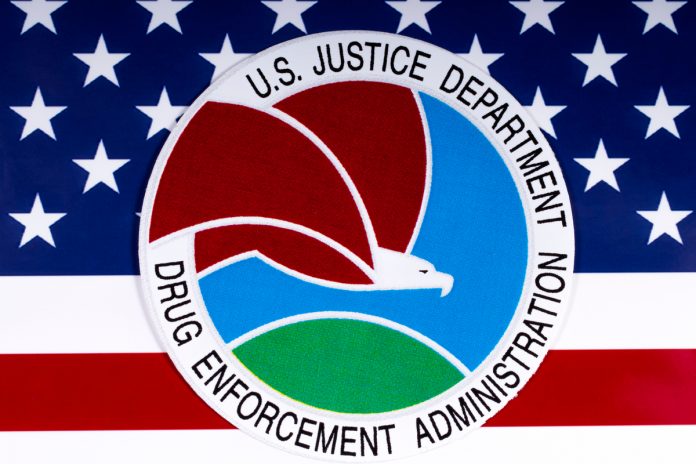WASHINGTON, D.C. – The Drug Enforcement Administration (DEA) has been required to release an internal memo that was supposedly used to force delays in approving new cannabis manufacturers to conduct research into the plant.
Under the Freedom of Information Act, the Scottsdale Research Group, an organization seeking to cultivate cannabis for research, filed a lawsuit last month accusing the DEA of using a secret memo as justification for not approving additional manufacturers to cultivate cannabis.
In the final days of President Obama’s administration, the DEA announced that it would approve cannabis producers to cultivate the drug for research purposes. However, President Trump’s administration has not approved additional entities to cultivate cannabis for research.
This week, a settlement in the case was reached. The DEA released the memo in question as part of the settlement agreement.
Although a settlement was reached, the DEA claims it is not admitting they violated any law.
“The parties acknowledge that this Settlement Agreement is entered into solely for the purpose of settling and compromising the claims in this action without further litigation, and it shall not be construed as evidence or as an admission regarding any issues of law or fact,” the DEA said in the agreement.
In the secret memo, the DEA cited the Single Convention on Narcotic Drugs, an international treaty crafted in 1961, as the reason they decided not to approve additional manufacturers.
The “Single Convention requires parties either to prohibit marijuana cultivation altogether or, if they permit cultivation, to establish ‘a single government agency’ to oversee marijuana growers and generally to monopolize the wholesale trade in the marijuana crop,” the memo reads.
The key issue is the “single government agency” text. The Department of Justice Office of Legal Counsel (OLC) said the treaty only permits a single government agency to oversee the possession and cultivation of cannabis for research. The OLC determined that the U.S. was not adhering to the Single Convention treaty as both the DEA and the National Institute on Drug Abuse were both part of the process of regulating cannabis produced for research.
OLC said the DEA needed to draft new regulations to be in compliance with the Single Convention treaty.
“We conclude that DEA must change its current practices and the policy it announced in 2016 to comply with the Single Convention,” the memo said. “DEA must adopt a framework in which it purchases and takes possession of the entire marijuana crop of each licensee after the crop is harvested. In addition, DEA must generally monopolize the import, export, wholesale trade, and stock maintenance of lawfully grown marijuana.”
Now the DEA will be the sole federal agency overseeing cannabis production for research.
Although the Obama administration was willing to deviate from the Single Convention treaty, reports indicate former U.S. Attorney General Jeff Sessions, a well-known opponent of cannabis legalization, prevented any applications received by the DEA. It is estimated that the agency fielded dozens of applications. Current U.S. Attorney General Bill Barr has signaled a willingness to approve additional manufacturers.











